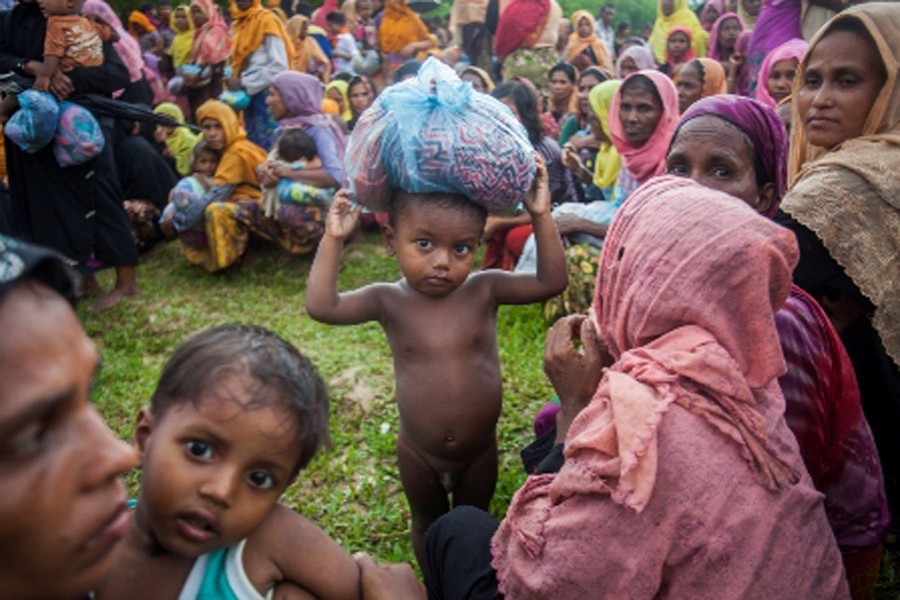Over 350,000 Rohingya children who fled to Bangladesh along with their families have been suffering immensely for lack of pure drinking water and hygienic sanitation system in the makeshift Rohingya camps in Cox’s Bazar district, exposing them to a serious health risk, reports UNB.
According to data provided by the Directorate General of Health Services, some 90,504 girls and 85,674 boys -- aged from zero to five -- have been using open spaces to defecate regularly in and around Kutupalong, Palongkhali and Balukhali camps of Ukhia and Teknaf upazilas, polluting the environment.
Besides, around 89,288 girls and 58,363 boys -- aged from six to 17 years -- are facing a great dilemma in using open spaces to defecate and they have to compete with the elders to use makeshift toilets set up in the Rohingya camps.
While visiting the Rohingya camps in the two upazilas, this UNB correspondent found huge excreta scattered here and there in and around the Rohingya camps, contributing to the outbreak of waterborne diseases like diarrheoa.
Over 10,000 Rohingyas with diarrhoea were referred to several hospitals of the district as of Tuesday, according to United Nations High Commissioner for Refugee (UNHCR).
Against the backdrop, the Health Ministry in association with the World Health Organization (WHO) and Unicef launched a massive cholera immunisation campaign from Tuesday near Cox’s Bazar to protect the Rohingyas who newly arrived and host communities from the life-threatening disease.
The children entered Bangladesh after an arduous journey of six days on average on foot along with their families from Rakhine State of Myanmar, making them physically and mentally weak.
Some 24,000 such Rohingya children have so far been given mental healthcare at 40 mobile child-friendly centres, said Inter Sector Coordination Group (ISCG) of International Organization for Migration (IOM).
The government in association with the international organisations has so far set up some 1,047 makeshift toilets and 698 deep tube-wells in and around the Rohingya camps although it was planned to install 1,200 toilets and as many tube-wells there.
Besides, a total of 14 mobile water treatment plants, six mobile water carriers -- each having a capacity to carry 3,000 litres of water -- and eight water reservoirs have been installed in and around the camps to provide water to 8,000 families.
Besides, hygienic kits, 400 emergency pit latrines and 45 mobile toilets have been provided for 2,000 families.
However, some 7,114 Rohingyas have been suffering from acute malnutrition despite all these arrangements with 114 being sent to Cox’s Bazar Sadar Hospital for treatment, as per the IOM data.


